2 min read
Gospel-Centered from the Start
“Let us hold unswervingly to the hope we profess, for He Who promised is faithful…Jesus Christ is the same yesterday, today, and forever.” (Hebrews...
4 min read
 Barbara Comito, former marketing director
:
December 3, 2021
Barbara Comito, former marketing director
:
December 3, 2021
Opioids. Meth. Marijuana. Cocaine. Cartels. Addiction. Synthetics. Big money. Big pharma. Overdoses. 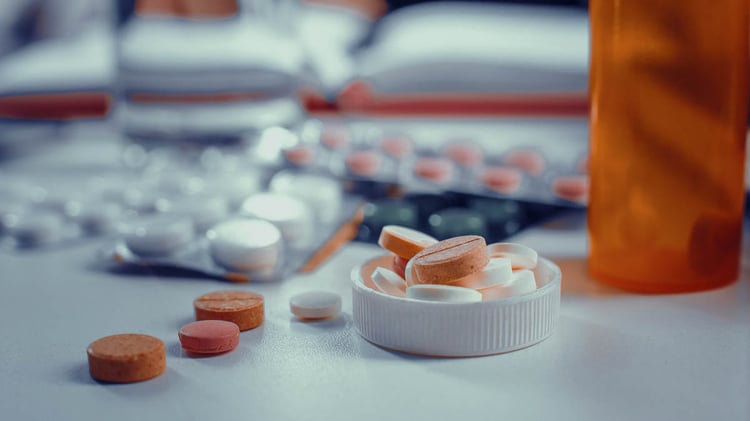 For weeks, I’ve been reading research articles and watching documentaries surrounding the drug crisis. My head is swimming in data; any single statistic represents a dark spiral into supply, demand, misdirected hustle, greed, human despair, the desire to escape pain and the willingness to capitalize on that desire.
For weeks, I’ve been reading research articles and watching documentaries surrounding the drug crisis. My head is swimming in data; any single statistic represents a dark spiral into supply, demand, misdirected hustle, greed, human despair, the desire to escape pain and the willingness to capitalize on that desire.
If you’re like me, the drug crisis slipped in your mental hierarchy of concerns below the economy, COVID, politics, mental health and other noisier issues in 2020 and 2021, but don’t be fooled, the crisis has not gone away. It’s gotten worse.
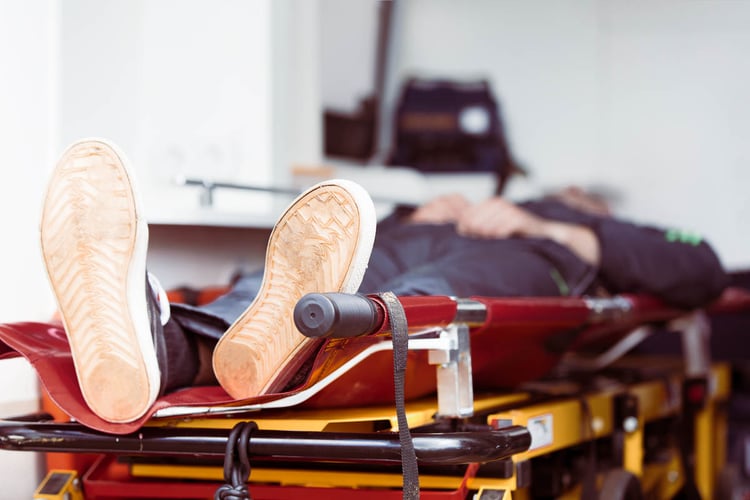
The Addiction Center says that addiction and homelessness go hand-in-hand: “The end result of homelessness is often substance abuse, and substance abuse can also contribute to homelessness. The National Coalition for the Homeless has found that 38% of homeless people are alcohol dependent, and 26% are dependent on other harmful chemicals. [Counselors and caseworkers at UGM suggest these percentages are quite low for our population.]
“Oftentimes, addiction is a result of homelessness. The difficult conditions of living on the street, having to find food, struggling with ill health, and being constantly away from loved ones create a highly stressful state of being. Individuals suffering from homelessness may additionally develop psychiatric conditions in response to a harsh lifestyle often characterized by feeling threatened by violence, starvation, and a lack of shelter and love.”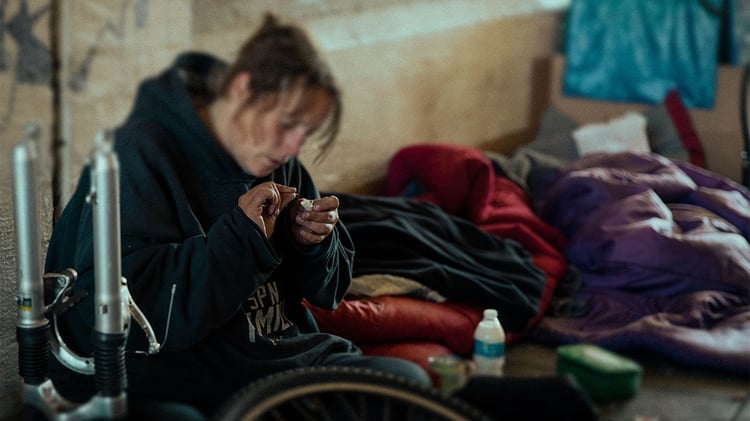 Suggested solutions to the drug crisis range from legalization, which proponents say would allow for regulation and ensure the “quality and safety” of the product, to death penalty sentences for dealers. One extreme insists that “harm reduction” is the best we can do; the other elevates fear of punishment as the best modifier of behavior.
Suggested solutions to the drug crisis range from legalization, which proponents say would allow for regulation and ensure the “quality and safety” of the product, to death penalty sentences for dealers. One extreme insists that “harm reduction” is the best we can do; the other elevates fear of punishment as the best modifier of behavior.
The danger with a problem of this magnitude is that we throw up our hands in despair or, worse, turn away in disgust. The danger is seeing this crisis as somehow separate from us, not our problem, seeing drug users and those suffering from addiction as somehow “other.”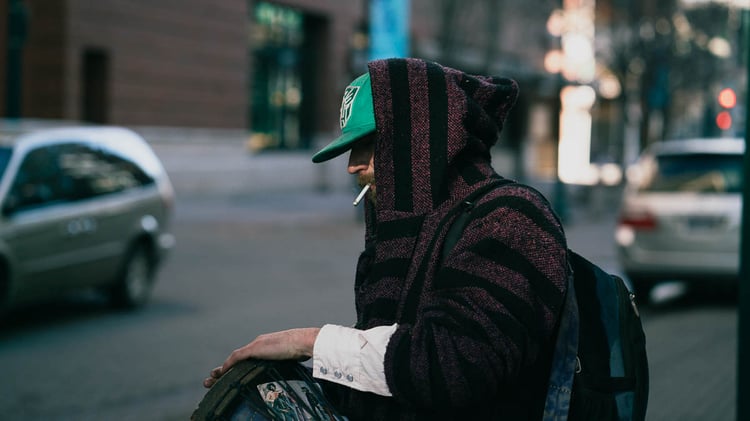 So, where does that leave us?
So, where does that leave us?
I am all for educating yourself, being informed and making good voting decisions, but I think the majority of us are going to enter this discussion and have the opportunity to make an impact at a much more elemental level—through our personal relationships, conversations, and even the way we think about this subject in our own minds.
What follows are suggestions on how to approach this very complicated subject and make a difference within your sphere of influence—just by directing the conversation in beneficial ways.
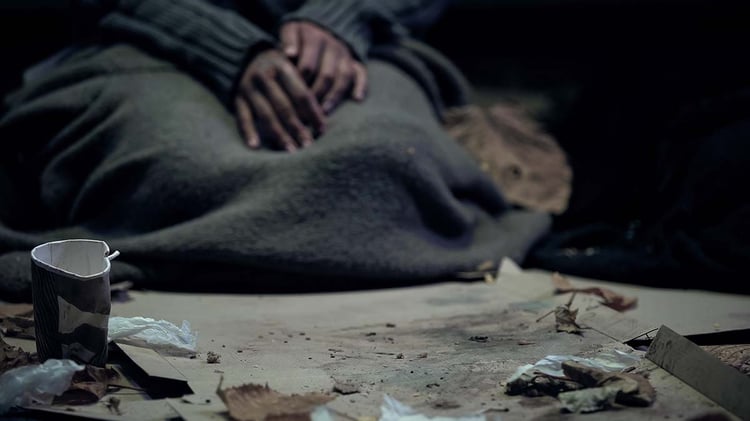 An Addict Is a Human Being.
An Addict Is a Human Being.The drug crisis is about people. Humans. And primarily it’s about humans trying to escape pain. We’ll look at this desire to escape pain more closely in a second blog post, but for now, consider these words from Dr. Glenn Doyle, a licensed psychologist specializing in recovery: “You don’t just ‘treat addiction.’ You end up treating anxiety, depression, PTSD, loneliness, rage, despair, toxic secrets, regret, undiagnosed head trauma, untreated ADHD. Then you realize addiction is often someone’s best attempt to cope when they don’t see other options.”
“You don’t just ‘treat addiction.’ You end up treating anxiety, depression, PTSD, loneliness, rage, despair, toxic secrets, regret, undiagnosed head trauma, untreated ADHD..." Dr. Glenn Doyle Click to tweet
Dr. Doyle’s words hold true within the LIFE Recovery program at UGM. Participants tell us again and again that they don’t talk a lot about addiction in the program; they spend most of their time addressing the wounds that the addiction was meant to numb.
Steve, one Recovery resident, said: “The reason I did drugs in the first place was because I was trying to escape the unwanted feelings, thoughts and emotions.”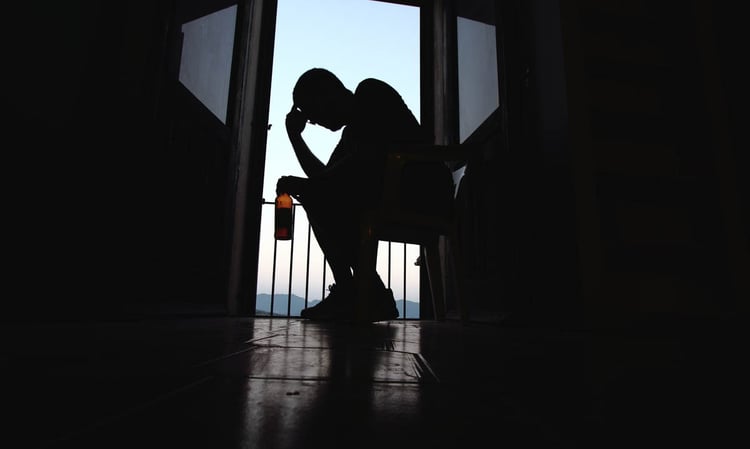 Ron, also in Recovery, added: “The problem is me—not the alcohol. The problem is how I react to society. My fear is one of the biggest driving forces—fear of failure, fear of not measuring up, fear of being exposed. This program is teaching me to deal with the fear.”
Ron, also in Recovery, added: “The problem is me—not the alcohol. The problem is how I react to society. My fear is one of the biggest driving forces—fear of failure, fear of not measuring up, fear of being exposed. This program is teaching me to deal with the fear.”
Any meaningful discussion of the drug crisis has to start with the fact that people are the ones abusing alcohol and drugs. People are also the ones growing it, manufacturing it and selling it. The drug problem is a human problem, and while it may seem far removed from us, the issues driving it are ones with which we are all intimately acquainted.
“The drug problem is a human problem.”
Poverty, desperation and greed are major players in the drug trade. From the field workers who scrape the milky substance from unripe seedpods of poppy plants to the “mules” who transport plastic baggies of various drugs inside their body cavities, a huge number of people are working in the drug business out of desperation and a lack of legitimate opportunities. Many of them are barely scraping by. Most are uneducated and unaware of alternatives.
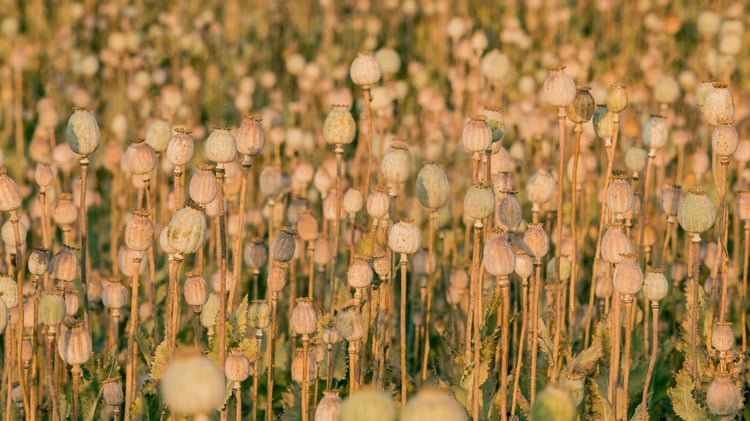 What would it look like to help create meaningful, living-wage jobs in these impoverished areas—both within the US and internationally? How can Christians be a part of that effort?
What would it look like to help create meaningful, living-wage jobs in these impoverished areas—both within the US and internationally? How can Christians be a part of that effort?
The Sackler family made billions of dollars off OxyContin. In 2019, the family was said to be conservatively worth $12.4 billion. If they hadn’t been caught and exposed as villains, would we have been envious, even admired them? Certainly, they were very philanthropic—facilities all over the country were named after them.
For most of us, having that kind of money is even more difficult to imagine than being a drug addict, but where does greed begin? How much money is enough? Where do I place my hopes and dreams? At whose expense am I willing to make a buck? Do I pay someone less so I can have more? Do I try to get a good deal even if it means hurting the other person? Do I care if the product I’ve produced lasts? How much am I even thinking about the other person when I earn, buy or spend? Do I think of my paycheck, my savings, as my own? Or do I see them as God’s and hold them with an open hand?
If you’ve read this far, you may be frustrated by my lack of answers. I’m a little frustrated with myself, but I think the truth is that any complex problem is more about dissecting the tangled knot and finding one piece where you can enter in. You can look at the next addict you meet as a person and believe that, while they’re breathing, there is hope.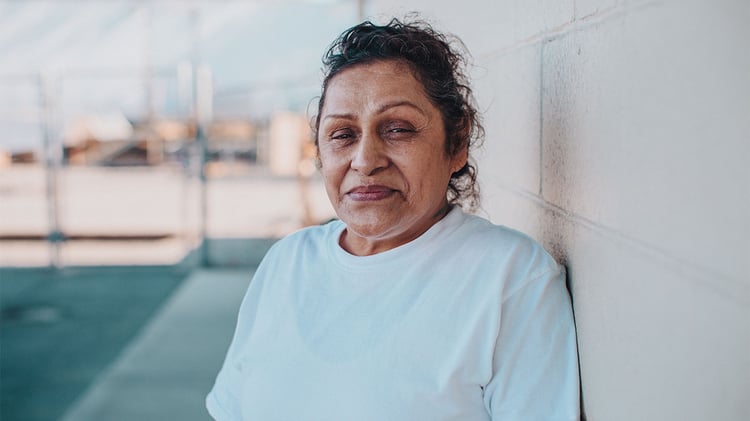
To keep reading about homelessness today, download our free e-book Homelessness 101.

2 min read
“Let us hold unswervingly to the hope we profess, for He Who promised is faithful…Jesus Christ is the same yesterday, today, and forever.” (Hebrews...

9 min read
To celebrate 75 years of serving the Inland Northwest, we are spending the year remembering our history and the faithfulness that built us and...

2 min read
In 2026, Union Gospel Mission Inland Northwest is approaching our 75th Anniversary! This is a milestone that invites gratitude and reflection, and...
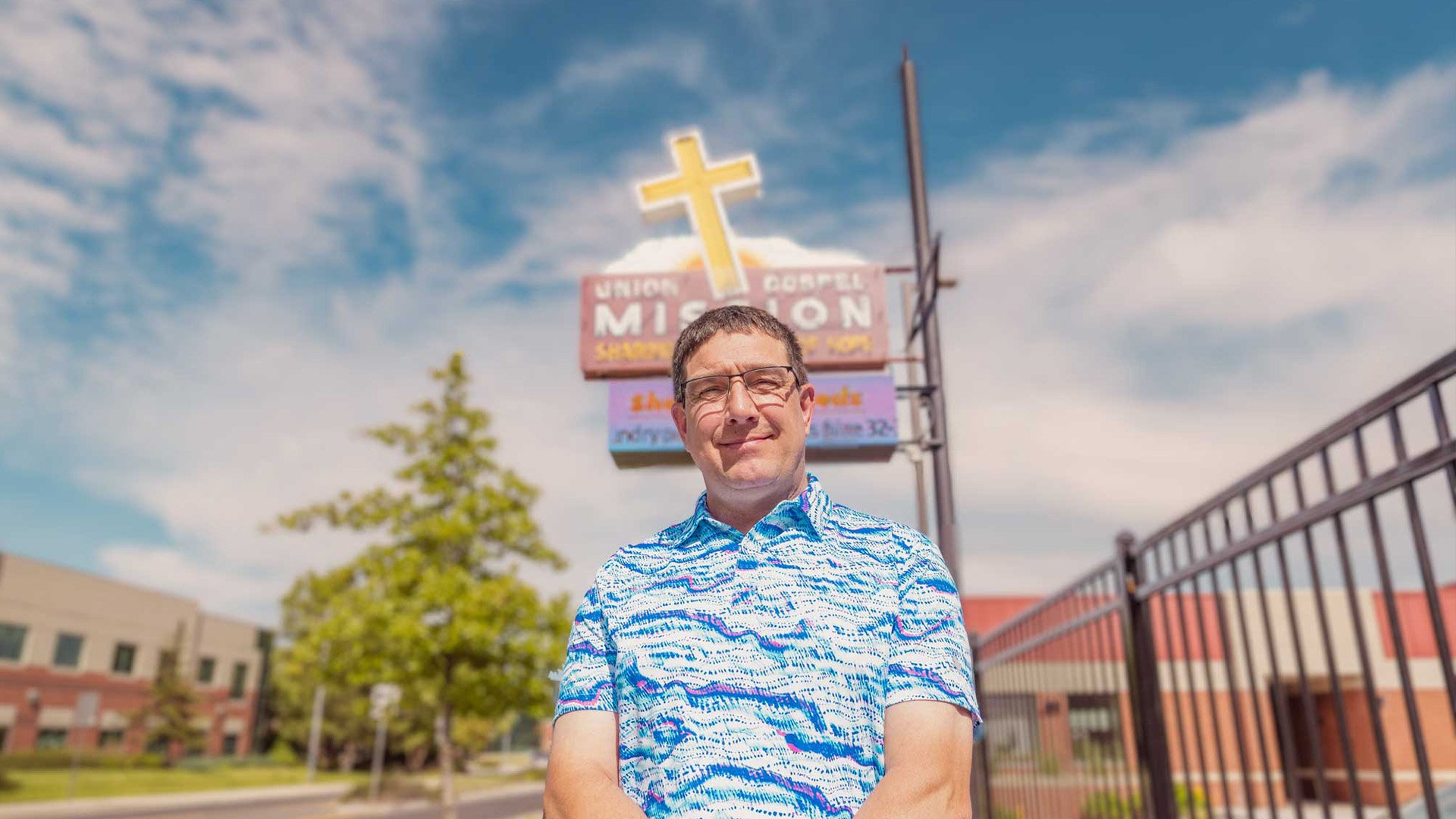
“The enemy got his hooks into me early. I’d been using for roughly 40 years.”
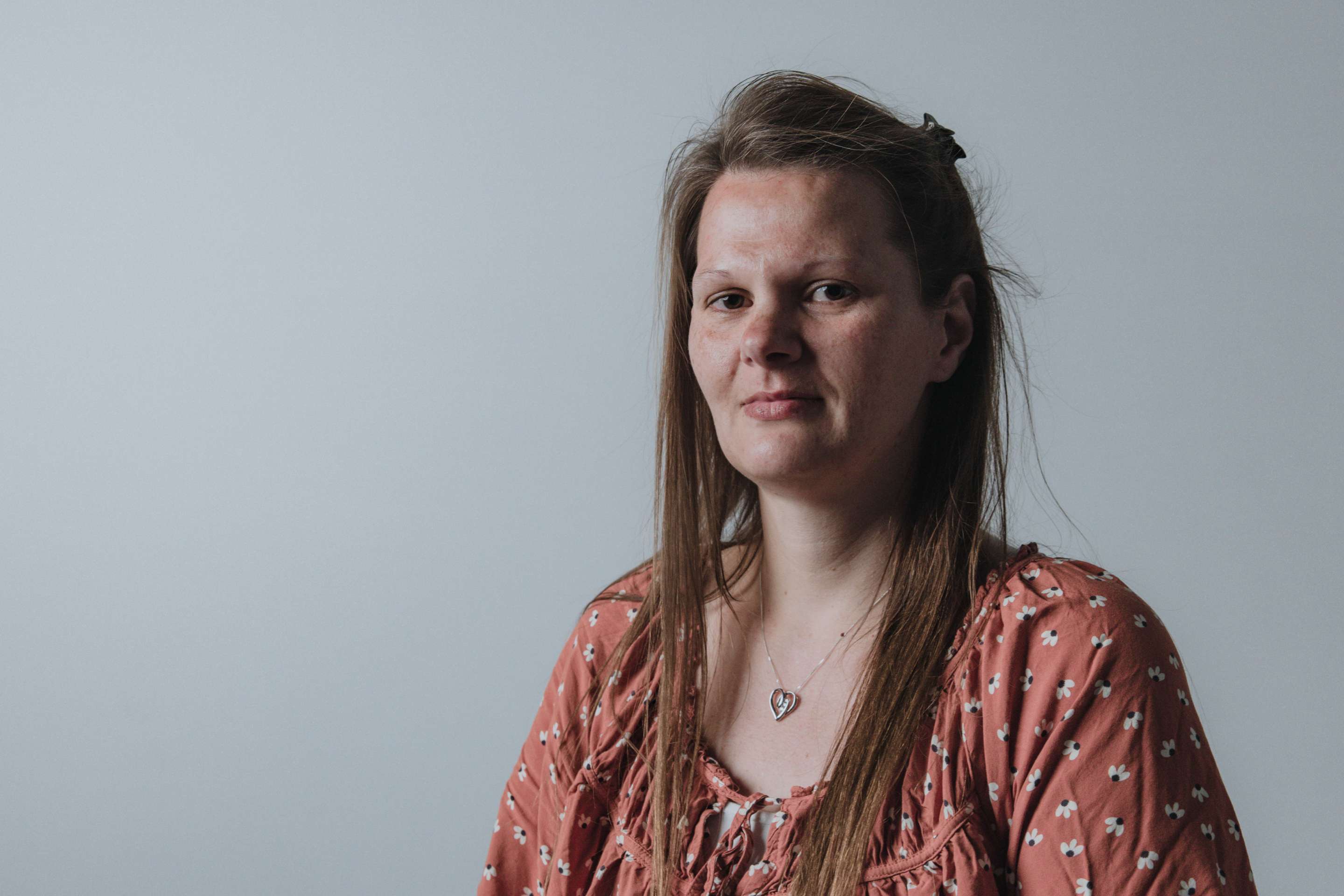
We know people need love. People need a safe community, connections to housing, medical care, and jobs. They need to know they’re not alone, they’re...

1 min read
Addiction is so much bigger than drugs & alcohol. In this interview, Dave Edwards, a Spokane mental health professional and former UGM counselor,...